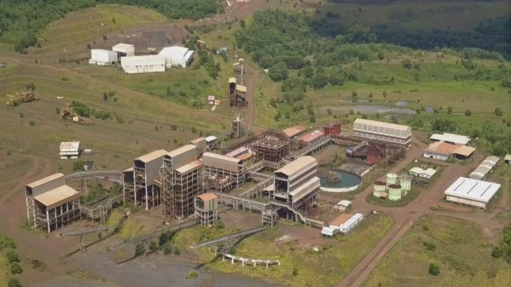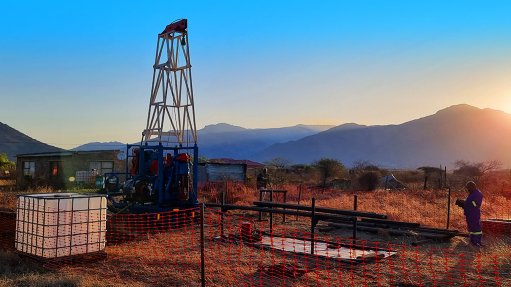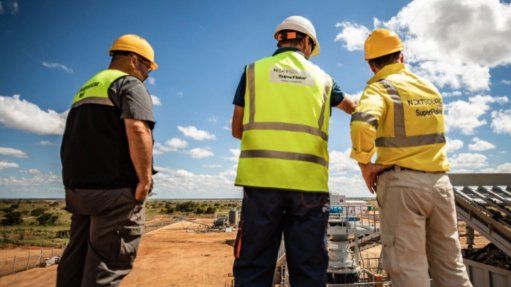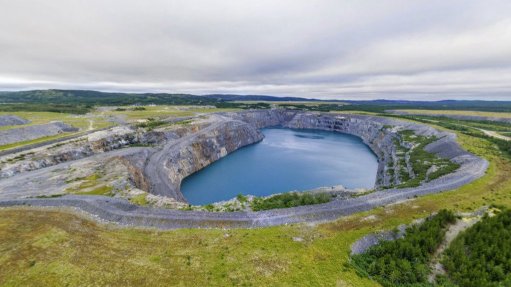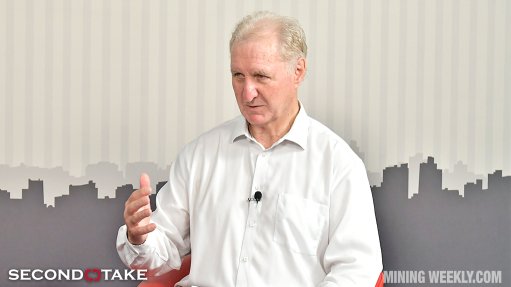LNG has multiple benefits as a transition fuel – CEO
Liquified natural gas (LNG) used in a generator enables individuals and enterprises to not only save costs but also reduce their carbon-emission contributions.
Helium and natural gas producer Renergen CEO Stefano Marani says natural gas produces an inordinately smaller carbon footprint than that of diesel, oil or petrol.
Therefore, natural gas becomes the natural fuel of choice when transitioning to net-zero, he adds.
“A standard diesel generator could be converted to run on a blend of LNG, which will result in a significant reduction in carbon emissions.”
He says to implement this is rather simple – one can easily convert a generator to run on a dual mix of LNG and diesel, which will result in a decrease in running costs of up to 30%.
For example, during loadshedding, it will be beneficial to businesses to use an LNG-based generator to optimise efficiency and cost.
The principle is very similar to that of running a truck on LNG, as it requires a small modification and the addition of an engine control unit (ECU), which then acts as the “brain” of the engine, Marani outlines.
The ECU ‘decides’ and mixes the ratio of gas to diesel going into the piston chambers, based on how much power is required.
“The net benefit is two-fold – diesel and natural gas combined in the engine will reduce overall energy consumption by up to 10%, and LNG is significantly cheaper than . . . diesel.”
He further explains that, if a customer were to capture the heat or cooling – from gasifying the LNG – then this system may be even cheaper than being on grid, and this is available to all businesses.
This is the perfect option for companies that require steam, such as abattoirs or those involved in bottling; or cooling, such as distribution centres and data centres, says Marani.
Moreover, Renergen has been approached by multiple customers with requests for the conversion of diesel backup to LNG diesel dual fuel machines to benefit from lower emissions, relative to using State-owned utility Eskom’s power.
He says coal, with many impurities, is extracted from the ground and includes radioactive heavy metals and sulphur, besides others.
The sulphur being burned leads to the production of sulphuric acid, or acid rain. The radioactive metals are released into the atmosphere and find its way into lungs, becoming carcinogenic. Coal also produces a huge amount of carbon dioxide (CO2) when burned, he adds.
By contrast, LNG produces only CO2 and water vapour.
The only two challenges when using an LNG-based generator is to park a trailer on site, which is about 12 m long, and having to install gas piping to supply the fuel to the engine.
Further, Marani adds that LNG has signalled its importance only now, as it was never available in South Africa before, in addition to there being many challenges when importing LNG.
He points out that energy security means having a mix of energies: “Coal, nuclear, wind, solar and LNG have their place. However, if LNG had to overtake all other energies, from a CO2 perspective, there would be a 40% to 50% decrease in carbon emissions, and there would be almost a 90% reduction in carcinogenic toxins being released in the atmosphere.”
In addition, according to data from the World Bank, eliminating only coal from the global energy mix will require investment of about $78-trillion. The world invests $350-billion a year on all types of generation, not only renewables.
Assuming the world were to change its current spending to only renewables, it would take more than 220 years to just eliminate coal – excluding oil and gas, Marani adds.
While reducing emissions is arguably the noblest cause, South Africa needs to be practical and invest in carbon capture technology to reverse the human impact on the composition of the atmosphere with innovative farming ideas, such as regenerative farming, which could easily sequester all CO2 using very limited investment, compared to building new-generation capacity, he says.
However, sequestering carbon using nature, with significantly less investment, is not as interesting to big businesses. South Africa will follow the global trend and, by 2060, this conversation will still be taking place until about 2100, he declares.
Yet, as LNG is a significantly lighter climate change fuel, the demand for and security of it will be amplified, concludes Marani.
Article Enquiry
Email Article
Save Article
Feedback
To advertise email advertising@creamermedia.co.za or click here
Press Office
Announcements
What's On
Subscribe to improve your user experience...
Option 1 (equivalent of R125 a month):
Receive a weekly copy of Creamer Media's Engineering News & Mining Weekly magazine
(print copy for those in South Africa and e-magazine for those outside of South Africa)
Receive daily email newsletters
Access to full search results
Access archive of magazine back copies
Access to Projects in Progress
Access to ONE Research Report of your choice in PDF format
Option 2 (equivalent of R375 a month):
All benefits from Option 1
PLUS
Access to Creamer Media's Research Channel Africa for ALL Research Reports, in PDF format, on various industrial and mining sectors
including Electricity; Water; Energy Transition; Hydrogen; Roads, Rail and Ports; Coal; Gold; Platinum; Battery Metals; etc.
Already a subscriber?
Forgotten your password?
Receive weekly copy of Creamer Media's Engineering News & Mining Weekly magazine (print copy for those in South Africa and e-magazine for those outside of South Africa)
➕
Recieve daily email newsletters
➕
Access to full search results
➕
Access archive of magazine back copies
➕
Access to Projects in Progress
➕
Access to ONE Research Report of your choice in PDF format
RESEARCH CHANNEL AFRICA
R4500 (equivalent of R375 a month)
SUBSCRIBEAll benefits from Option 1
➕
Access to Creamer Media's Research Channel Africa for ALL Research Reports on various industrial and mining sectors, in PDF format, including on:
Electricity
➕
Water
➕
Energy Transition
➕
Hydrogen
➕
Roads, Rail and Ports
➕
Coal
➕
Gold
➕
Platinum
➕
Battery Metals
➕
etc.
Receive all benefits from Option 1 or Option 2 delivered to numerous people at your company
➕
Multiple User names and Passwords for simultaneous log-ins
➕
Intranet integration access to all in your organisation






